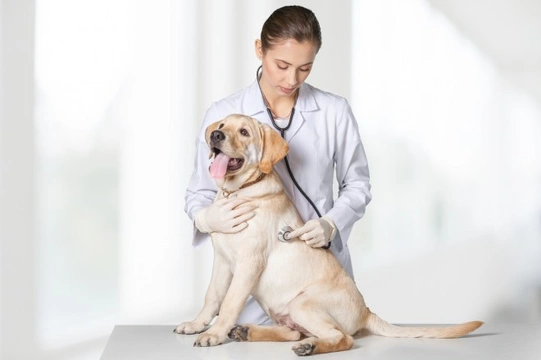
Reasons for why dogs might not urinate after surgery
Most dogs will go through at least one surgical procedure in their lives, being their spay or neuter surgery respectively. As well as this, many dogs will of course need to have surgery for a health problem or injury at some point, and as well as the critical period of the surgery itself, how well your dog recovers from it is something else that needs to be carefully monitored, both immediately afterwards in the clinic, and once you get your dog back home too.
Your vet should talk to you in depth about how to care for your dog at home immediately after surgery, and what signs of problems you will need to be on the lookout for. Your vet should also be available to you in the days following the surgery, in order to address any queries or concerns that you may have about your dog’s recovery.
Regardless of what sort of surgery your dog has undergone, one of the most common issues that face dog owners once they get their dog home is a reluctance or apparent inability to urinate, and this is something that you should be aware of.
In this article, we will look at some of the common reasons why some dogs may not urinate normally after surgery, and what can be done to resolve this. Read on to learn more.
Why isn’t my dog peeing?
A dog’s recovery from surgery is carefully monitored to ensure that they wake up properly, and that their pain is managed. A clinic will not send a dog home until they are happy that their recovery will continue properly at home, and while this often means waiting to see them start to eat, it does not always mean that your dog will need to pee before they are allowed home.
Some of the most common reasons why a dog will not urinate for a protracted period of time after they get home are outlined below.
Water intake
The need to urinate is of course directly related to how much water your dog drinks, and as they will not have drunk while in surgery and possibly may have chosen not to drink after, this can often mean that there is a large window afterwards when your dog will not need to pee. Find out from your vet if your dog was placed on IV fluids while they were in the clinic, as this will help you to assess if they are likely to have had a gap without water or not.
Pain
Recovery from surgery will of course often come accompanied by pain, and this can make your dog reluctant to go to the toilet, as well as potentially do other things too. If your dog cannot move around freely or without pain, they may simply be trying their best to hold it in, so that they do not need to move to go to the toilet.
Your dog’s pain should be managed after surgery, but a few hours afterwards while your dog is recovering may also involve a gap without urinating.
How awake is your dog?
Your dog will be woken up after surgery and monitored to make sure that they come around properly, but even so, your dog is still likely to be rather groggy for the rest of the day. How awake and alert they are will depend on how long ago they were woken up, and if any medications that they have been given are also affecting their consciousness levels.
If your dog is still sleepy, confused and not quite with it yet, they are likely to want to sleep it off before they go to the toilet.
The opportunity to toilet
In many cases, your vet will tell you that your dog’s movement and activity will need to be restricted after surgery, and this may mean that they cannot have their normal walks, and normal opportunities to go to the toilet. This means that you will need to pop your dog outside into the garden or yard to do their business, but if this is dramatically different to how your dog is used to going, they may be reluctant to perform on demand. Some dogs will flatly refuse to toilet on hard surfaces, and so taking them to a grassy area may help.
When is not urinating a problem?
If your dog has not urinated for 24 hours after surgery, you will need to speak to your vet. They will need to check your dog over and ensure that they are not dehydrated, and that peeing is not causing them additional pain that is making them reluctant to go. Depending on the type of surgery performed, it is possible that the procedure itself may have stopped up or affected your dog’s ability to urinate normally, which may mean that your dog will need to go back to the clinic for a check-up and to get things going.
It is important to stay in contact with your vet after surgery and let them know if you have any concerns, as early problems can then be nipped in the bud before they become critical.



